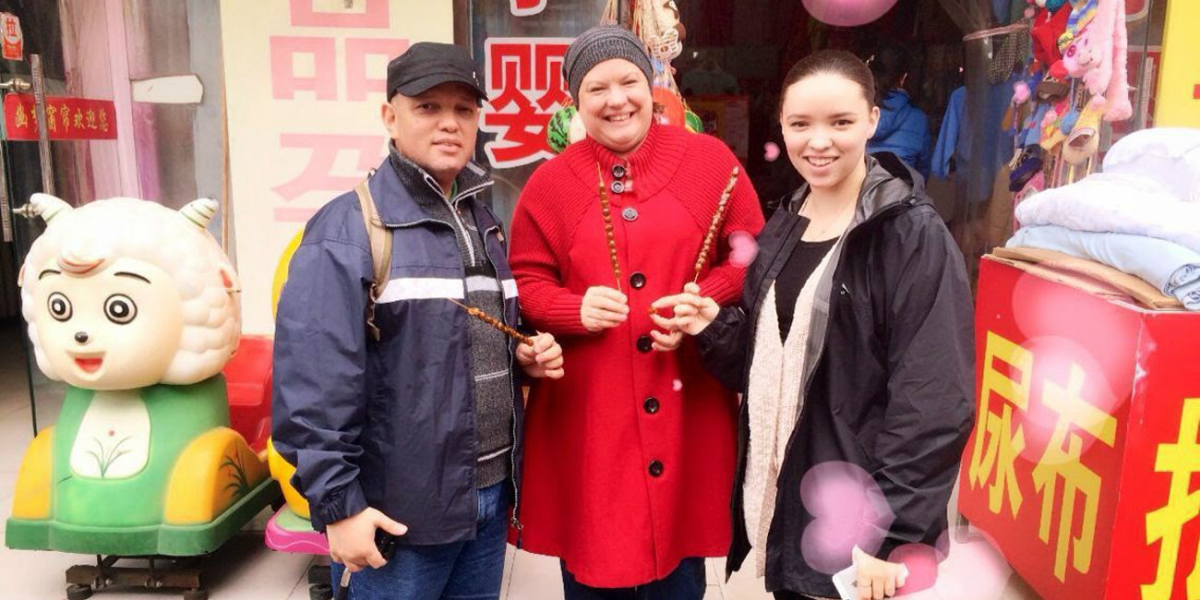
Lisa comes from South Africa where she worked as a teacher. In 2013, she was offered a new job in China. She stayed in Rizhao for three years until she moved to Shenzhen recently.
Where are you from, Lisa, and what are you doing nowadays?
I'm from South Africa where I was teaching. I decided to find a teaching position in China. I was offered one in Rizhao, in the Shangdong province, and taught there for three years. I have just moved to Shenzhen, in the Guandong Province to teach at another international school.
Why did you choose to expatriate to China?
I was spoken into it by the interviewing principal. So I decided why not go for the adventure.
As a South African expat, what where the procedures you had to follow to move there?
First of all, you need to apply for a police clearance. (I'm not sure why South African schools don't ask for this). As I lived in Kwazulu Natal, I had to travel to Pretoria to have my official documents authenticated by the DIRCO (Department of International Relations and Cooperation). These documents included my marriage certificate, Bachelors degree, children's birth certificates, and police clearance. I also had to quickly get my SACE (South African Certificate of Education). Once all the documents were authenticated by DIRCO, i had to get these authenticated by the Chinese Embassy. Once that was done, I had to scan all my legal document to the HR department of the school that hired me so that they could apply for an invitation certificate and expert certificate for me. This took between two to three weeks. They then sent the document via DHL, which took three days. I could then apply for a Z visa.

How long have you been in the country?
This is my fourth year here. I first arrived in August 2013.
What has attracted you to Rizhao?
I applied to the umbrella school and they posted me on the Rizhao campus. So I dis not request the city. But after knowing where I was going with my family, we viewed it on Youtube and loved the look of so many trees among modern buildings.
What has surprised you the most at your arrival?
The continuous throat clearing and spitting, as well as the stares from the local people.
Was it difficult to find accommodation there? What are the types of accommodation which are available there?
The school provided us with an apartment, on the 26th floor of a building. It was a very spacious three-bedroom apartment. You are most likely to find apartments in the area.

What are the local labor market's features? Is it easy for an expat to find a job there?
No. Unless you are applying for an English teacher position (we are the only international school here) or you work in the paper mill, there are not too many foreign jobs in Rizhao.
How do you find the Chinese lifestyle?
In Rizhao, it is very laid-back. The locals are very friendly, family-oriented and welcoming. The elderly and the youngsters are taken care of.
Have you been able to adapt yourself to the country and to its society?
It took a little while. However, with Chinese friends supporting us, integration was made easy.
What does your every day life look like in China?
During the week, it's mainly work. When we were in Rizhao, we used to visit markets on weekends, walk on the beach, archery, cinemas. We also make sure to visit Chinese restaurants once a month. On a weekend, we visited Qingdao.
Any particular experience in the country you would like to share with us?

Getting to know little words and phrases to get around and how to use Taobao/tmall/koubei makes life a lot more easier. Some of the highlights have been visiting the Great Wall of China on Christmas day and the hutongs in Beijing as well as The Bund in Shanghai on New Year's day. We got to experience the shear masses bringing in the New Year. We also loved the beautiful lantern festival in Rizhao on Chinese New Year.
What is your opinion on the cost of living in Rizhao? Is it easy for an expat to live there?
The cost of living is very affordable in Rizhao compared to other cities. It is easy for expats to live there, tour, send money back home and to make savings as well.
How do you spend your leisure time?
Walks on the beach, going to the markets or meeting up for dinner with friends.
Your favorite local dishes?
My favorite is the hotpot. I also like sweet and sour pork, pekking duck, fried rice and cauliflower and broccoli Chinese style, Chinese barbecue, not to forget dumplings. There is no such thing as chicken chow mein in China. It is a Western Chinese dish. Moreover, when eating Chinese dishes, you have to get used to garlic, ginger, soy sauce and chilies, lots of them.
What do you like the most about China?
It is safe and people are friendly. Moreover, public transport is readily available.

What do you miss the most about your home country?
Fresh air and my family.
Would you like to give any advice to soon-to-be expatriates in China?
When you come to China, come over with an open mind, without any preconceived ideas. Take one day at a time. Be approachable. Pay attention to advice given by locals and other expats and you will be fine.
What has motivated you to write your blog “Our Amazing Adventure in China”? How does it help?
The reason I started my blog was to keep my family and friends updated on our adventures. It was also a way of keeping a diary. It helps to reassure our family and friends that everything is going fine for us here in China.
What are your plans for the future?
The wheels are already in motion for our future. We have just moved to Shenzhen where we will be spending the next couple of years.



















